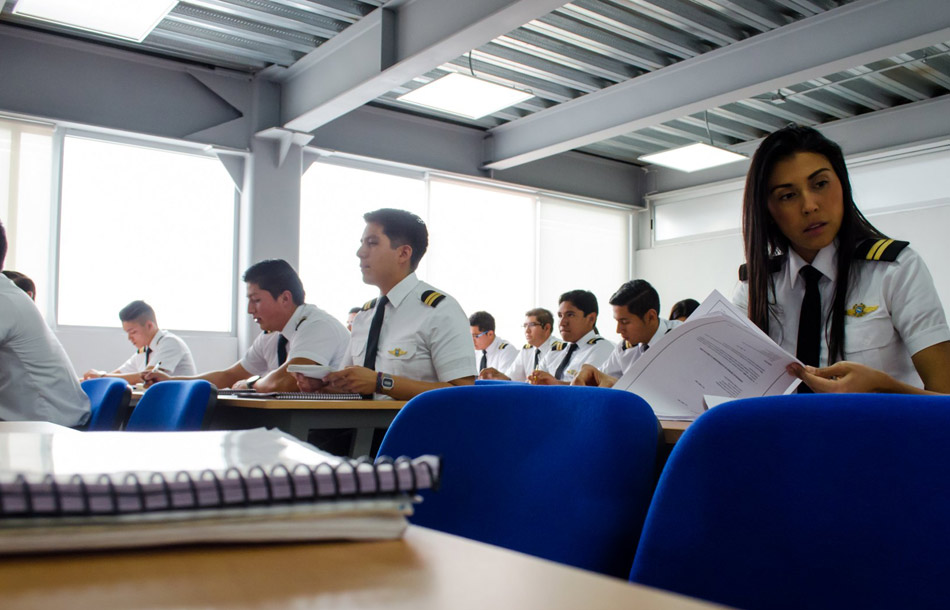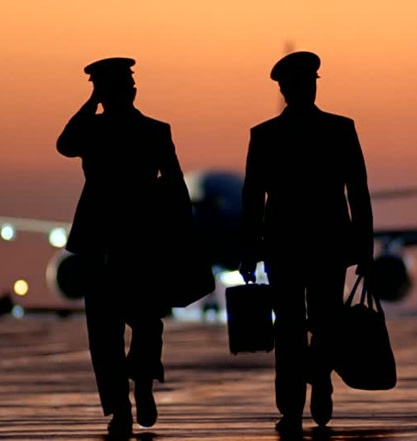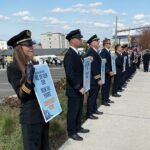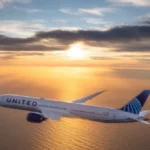Law Maker Urges FAA to Reject Republic Airways Request to Lower Required Hours

Speaking on the floor of the House of Representatives, Congressman Brian Higgins (NY-26) called on the Federal Aviation Administration to reject Republic Airway’s petition that would cut experience requirements to obtain a restricted Airline Transport Pilot rating (R-ATP).
Higgins worked alongside the families of Colgan Flight 3407, which crashed in upstate New York, to implement changes to Federal Aviation Regulations. Higgins said “We are calling on the Federal Aviation Administration to categorically reject this request and any attempt to circumvent pilot training requirements. Families in my Western New York community will never have their loved ones back, but we can ensure that every family moving forward is stepping on an airplane with a fully trained pilot.”
Changes in Law Following the Colgan 3407 Crash
Colgan Air Flight 3407, marketed as a Continetal Connection Flight, was a scheduled passenger flight from Newark to Buffalo New York. The aircraft entered an aerodynamic stall that it did not recover from and crashed into a house in Clarence Center, New York on February 12, 2009.
The National Transportation Safety Board (NTSB) investigated the accident and released their final report on February 2, 2010, describing details of the accident that led to 46 specific conclusions.

Following the crash Families of Colgan Flight 3407 worked with lawmakers in pursuing changes to safety regulations. This culminated in the passing of the Airline Safety and Federal Aviation Administration Extension Act of 2010.
The law was a comprehensive overall of regulations pertaining to safety. Some points include:
- The requirement that all pilots operating for an air carrier have an Airline Transport Pilot Certificate (ATP), which requires 1,500 hours of flight experience. Prior to this change only the pilot-in-command was required to have an ATP. The first officer could previously operate with a commercial pilot certificate, which requires 250 hours of flight experience.
- Established the restricted ATP certificate, which allows for hour reductions from 1,500 hours if the applicant earned an associates degree or bachelors degree from an FAA approved aviation college.
- Candidates pursuing an ATP must complete an FAA approved certification training program ATP-CTP prior to taking the tests required to obtain the certificate.
- Required a more robust record keeping and vetting process for airlines to hire pilots. Pilot checkride failures are tracked and shared between employers.
- Changed stall training to include recovery from full-stalls (rather than first indication of a stall) and additional stalls in a wider environment of operations and configurations.
- Established a requirement for Upset Recovery and Prevention Training (UPRT) to be part of initial and recurrent training programs at air carriers.
- Established a requirement for remedial tracking and training programs at air carriers.
- Requires professional development training, leadership training, and new pilot mentoring programs at air carriers.
- Changed flight crew duty and rest requirements. This was a major overhaul that updated the regulations to be based on human factors studies and made a requirement that rest periods be based on an actual opportunity for flight crew to sleep.
- Required air carriers to establish and operate approved Safety Management System (SMS) programs.
- Required air carriers to disclose the actual airline operating the flight. Prior to this passengers would often not know that they were booking flights on a Major Airline or Legacy Airline’s regional partner.
Reactions to the Change In Regulations
Pilot employers and lobby groups have made repeated appeals to some of the regulation changes. Particularly focusing on changes to the flight experience requirements before they can hire pilots.
Regional carriers have blamed some of their difficulties with finding enough qualified pilot applicants on the new certification and hour requirements.
Proponents of reducing the hour requirements ”point out that the National Transportation Safety Board (NTSB) and other experts have concluded that more flight hours do not necessarily translate into safer pilots.”
Chesley “Sully” Sullenberger, famous pilot who landed a US Airways airplane in the Hudson River countered “Trust me, there is no training substitute for actual flying time and real-world experience. Efforts to reduce flying hours fly in the face of evidence and logic, and put millions of lives at risk.”
Air Line Pilot’s Association (ALPA), the largest pilot union, rejects the idea that the pilot shortage is being fueled by the increased hour requirements, saying “According to the FAA’s Civil Airmen Chart, a total of 15,591 new air transport pilot (ATP and R-ATP) licenses were issued between 2019 and 2021. During that same time, approximately 9,671 pilots retired. Simply by the numbers, there remains a surplus of approximately 6,000 pilots available to meet the needs of the airlines.”
Republic Airways Petition to the FAA to Reduce Flight Experience Requirements
In the recent appeal to reducing the required flight hours needed for a pilot to become employed at an air carrier, Republic Airways has written a letter to the FAA petitioning the federal agency to lower the required flight hours so that a pilot completing Republic Airway’s R-ATP program could obtain the certification with 750 flight hours.
The airline says in its letter “The requested exemption would allow selected civilian pilots who complete the rigorous Republic R-ATP program to apply for an airline transport pilot certificate concurrently with a multiengine airplane type rating with a minimum of 750 hours of total flight time as a pilot.”
The airline said that its R-ATP program could resemble the military-based training pathway program. Military pilots can currently pursue a civilian R-ATP certificate with 750 hours.
Republic Airway’s proposed R-ATP program would be a closed loop system that would integrate with their subsidiary training program known as LIFT Academy. Upon completing the program pilots would only be able to use their R-ATP certificate when flying for Republic until the flight hours for an unrestricted ATP are met.
The company said that pilots applying to the program would have to undergo an aptitude test. They would enroll in the program as a full-time airline employee. Students would earn all required pilot certificates but their training would be geared towards 121 operations. For the ground portion “students will complete courses in Advanced Airline Academics, complete Command Experience, receive a Republic mentor, and complete Supplemental Advanced Aviation Training to help them better prepare for a career as an airline pilot.”
In the proposed program, if students fail any required knowledge or skills validation tests they would be removed from the program and would have to pursue their R-ATP via the currently approved way.
Republic Airways summarized their proposal “The program provides an efficient and well-defined path to becoming an airline pilot through a well-rounded, robust and comprehensive training curriculum that far exceeds basic ground/flight school and what is required for pilot certification. This will allow a safer and more diverse group of aviators to enter the industry.“
More Responses to Republic Airways Request
Families of Colgan and lawmakers have also responded to Republic Airway’s request.
Karen Eckert, who lost her sister, Beverly Eckert, in the the Colgan crash said “To do anything that would roll back or give exemptions to a regional airline touting a newly created, unaccredited flight training program … would be totally irresponsible of Congress or the administration.”
“There has not been a fatal crash on a U.S. carrier in over 13 years since Flight 3407, and prior to that, we had never even made it three years without such a crash,” Eckert said.
“To be perfectly clear, under no circumstances will Leader Schumer allow a claw back of the 1,500 hour rule that he and the 3407 families spent more than a decade fighting for on behalf of their loved ones,” said Allison Biasott , spokeswoman for Senator Chuck Schumer.
Greg started his professional pilot journey in 2002 after graduating from Embry Riddle. Since that time he has accumulated over 8,000 hours working as a pilot. Greg’s professional experience includes flight instructing, animal tracking, backcountry flying, forest firefighting, passenger charter, part 135 cargo, flying for a regional airline, a national low cost airline, a legacy airline, and also working as a manager in charge of Part 135 and Part 121 training programs.



